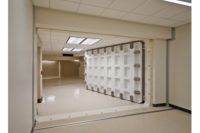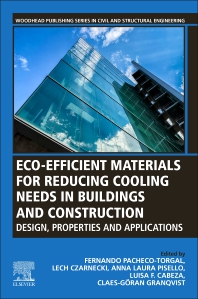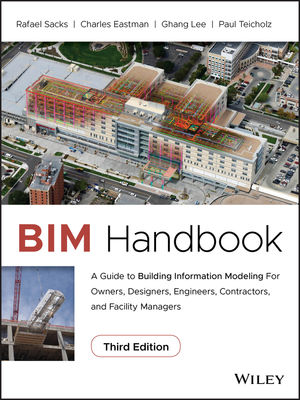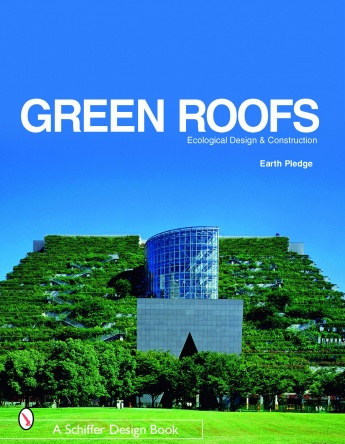As Butch Gardner hauls cranberries between two cold storage facilities on the Badger State Fruit Processing property in Pittsville, Wis., he gives the “thumbs-up” to plant manager Mark Konrardy for a job well done. Konrardy met three tough challenges for the construction of a new cold storage facility, which was built to house Badger’s 200 million pounds of cranberries with room to grow.
Gardner, owner of Badger State Fruit Processing, is getting ready for the new cranberry harvest, which happens in just a few short weeks. Badger State’s 200 million pounds of cranberries represents about 45 percent of Wisconsin’s enormous crop. With Wisconsin’s claim to the largest cranberry-producing state in the union, that’s no small potatoes. According to Gardner, Wisconsin harvests about 52 percent of the world’s cranberries.
“Right now I grow, sell, and process cranberries for all of the buyers in the states — including the very biggest.” With 1100 acres of cranberries, Gardner is Wisconsin’s largest independent grower. “Right now our cranberries are stored in our combined two cold storage buildings. With the new facility we’ll go past that as new acres are planned to meet world demand for cranberry products.”
The new cold storage facility had to be built to withstand many years of operation. Gardner issued a directive to Konrardy. “The owner challenged me to find a way to keep our operating costs on the new cold storage facility low while achieving demanding temperature control requirements,” explained Konrardy. “Our choice to use Foam-Control and Foam-Control Plus architectural grade EPS insulation evolved out of my research into materials that would meet performance, cost, constructability and environmental criteria. We wanted to make sure it wouldn’t break down underground. It has to hold up for years of operation and not become damaged by moisture.”
Nearly 2 million board feet of ACH Foam Technologies’ Foam-Control flat EPS roof insulation and over half a million board feet of the manufacturer’s new Foam- Control Plus+ architectural grade perimeter and underslab insulation were used in the construction of the new cold storage facility this summer.
Konrardy has had a long-term interest in environmental stewardship. “I set up a list of quantifiable parameters grouped into three categories: performance, cost and environmental stewardship. Within those categories I researched various materials available and when all was said and done, Foam Control EPS insulation came out the clear winner for several reasons,” Konrardy added.
When researching the long-term warranted R-value of rigid foam insulations Konrardy found that both Foam-Control and Foam-Control Plus+ provide a 100 percent R-value warranty for 20 years. In contrast, other rigid foam insulations only warrant a percentage of their stated R-value because their materials off-gas and progressively lose R-value over time. This is true of extruded (XPS) insulations. EPS insulations such as Foam-Control and Foam-Control Plus+ do not lose R-value over time.
Compressive strength concerns were addressed by using Foam-Control Plus+ 400 (40 psi) for the freezer area and Foam-Control Plus+ 250 (25 psi) for the remainder of the perimeter and underslab areas. “I also researched the performance of rigid insulations when exposed to moisture,” stated Konrardy, “and found that EPS has a higher permeability than XPS. That extra permeability allows trapped moisture to escape. This is a good thing, because it maintains its R-value better.”
Because Konrardy was very interested in environmental considerations, he wanted to find an insulation that contained recycled content and didn’t leach toxic chemicals into the ground water. “This was a great find for me: that Foam-Control insulations contain up to 15 percent recycled content in the code-approved labeled EPS. This is the highest percentage of recycled content of all the rigid foam insulations on the market,” explained Konrardy. “I also know that EPS is easy to recycle and doesn’t contain leachates.”
The tipping point, according to Konrardy, was cost savings. R-value to R-value, EPS is 10 to 20 percent less expensive than other rigid foam insulations. “My decision wasn’t that difficult,” Konrardy added. “I was able to find a material that satisfied the criteria Mr. Gardner set out for me and satisfy my desire to make our plant greener.”
For more information about ACH Foam Technologies, call 800-525-8697 or visit www.achfoam.com.
Badger State Fruit Processing
Performance criteria:
• Warranted, long-term in-service R-value
• Compressive strength
• Water absorption and impact on R-value
• Water permeability
Environmental Criteria:
• Recycled content
• Recyclability
• Leachates
Cost and constructability criteria:
• Cost of product per R-Value
• Availability of sizes












